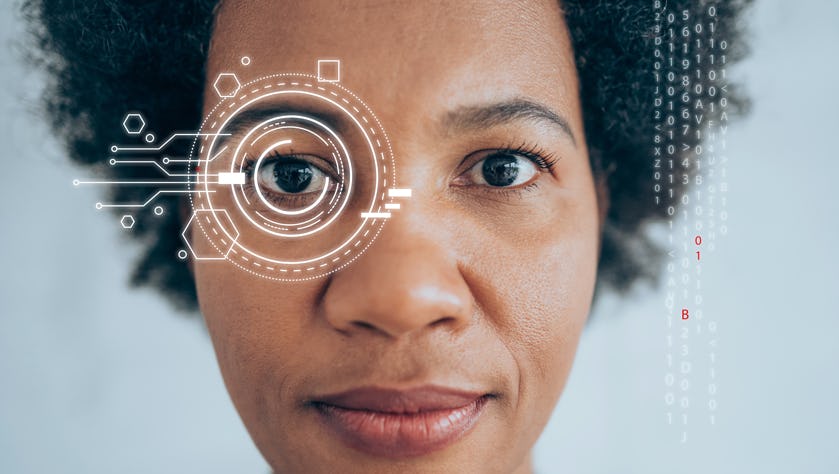
The start of a new year has got us thinking about the future – and particularly the technologies that might shape the way we work over the next 12 months. From biometrics to blockchain, futurist Tracey Follows shares her predictions for 2021
1. Biometrics
Perhaps the most obvious and short-term technology that will transform our working life is biometrics. Whether it’s facial recognition, fingerprint verification, gesture control or keystroke monitoring technology, companies may be able to surveil their employees through the data that is collected and analysed as they work in the office, remotely or at home.
As facial recognition companies in China have shown, everything from an individual’s skin status to mood evaluation can be monitored. Expect unions and civil rights organisations to take up this issue in the faint hope of preserving the notion of privacy at work.
2. Avatars
A generation brought up on gaming and communicating in virtual worlds have become very used to exploring the world as digital versions of themselves. And building characters in Roblox or The Sims is great training for the future of work.
Soon we will be able to design our own avatars and present ourselves online in new and different ways. Digital portrayals of ‘you’ will attend virtual meetings whilst you are busy doing something else. In fact, you may be able to attend more than one meeting at once by sending your avatars to a number of gatherings simultaneously.
3. Brain-machine interface
As the future of work becomes less physical and more cognitive in nature, companies will be encouraged to help their employees extend their cognitive abilities by utilising the cloud to extend their memory or provide them with a more powerful intelligence.
Much like the military are experimenting with super-soldiers who are equipped with telepathic warfare controlling fighter jets with merely their minds, employees will have the option to control workplace machines with their minds. Elon Musk’s Neuralink might help us to stream music to our brains, save and replay memories and thought-control external objects. This new frontier merges HR with IT and will open up a whole new organisational department and C-suite position at work.
4. Blockchain
Blockchain has long promised financial innovation but another interesting application of the technology is voting. Imagine this being used to guarantee transparent and tamper-proof elections for companies who want to manage their shareholder votes. It may mean that an AGM could be hosted virtually with participants voting safely but remotely. And then rolled out to other kinds of polling or voting among employees.
5. Digital Currency
We’re already making less and less use of cash, as contactless cards and digital payment services become increasingly popular. But the blockchain will also enable digital currencies – or cryptocurrencies – which offer a decentralised system of value.
Bitcoin is the most well-known but not the only one and it means that micro payments can be made freely without physical or territorial borders, which in turn means paying anyone anywhere in the world for any work they might do, large or small. Some of these currencies will facilitate a global workforce, who will be paid micro-payments for micro-tasks, wherever they might be.
Tracey Follows is the Founder CEO of Futuremade, a futures consultancy, and the author of The Future of You: Can your identity survive 21st-century technology? (Elliott & Thompson)
Enjoy this? You might like these other Spaces magazine stories:
Share this article
 Read now Can your surroundings make you more creative?
Read now Can your surroundings make you more creative?
 Read now What really motivates you?
Read now What really motivates you?